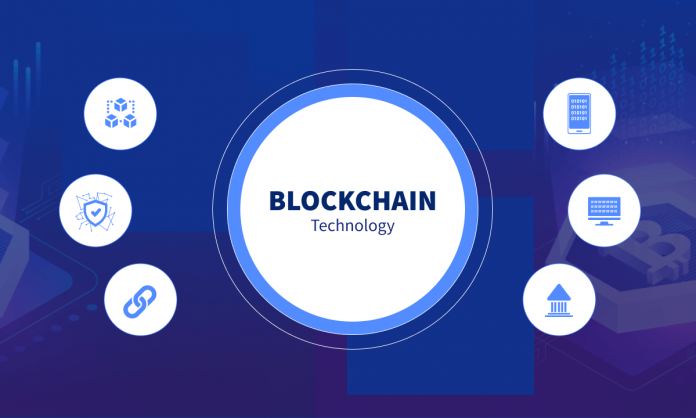Blockchain technology has made significant strides in its development and widespread adoption in recent years, and there’s no sign of it slowing down. In fact, according to Deloitte’s 2021 Global blockchain development Survey, almost 76% of executives surveyed said they expect digital assets will be a solid alternative to fiat currencies for global finance in the next 5–10 years.
That means it’s time to prepare for a financial and social revolution that will change how we process transactions, manage data and deliver services. Meet Symbiosis, the company that allows you to transfer your liquidity with low slippage on any chain.
Unfortunately, blockchain is still not widely or systematically understood. We know it as the technology powering cryptocurrency such as bitcoin. But this is far from its only application — and many people don’t realize exactly how blockchain can help them, their company, or even society at large. Industry leaders choose blockchain due to its reliability: the technology stays on top of choices by protecting the data with cryptographic methods. Blockchain has already proved itself in Retail, Healthcare, Real Estate, and other domains, making blockchain software development a promising investment.
So, let’s see what the future of blockchain technology looks like? What changes will it bring?
How Promising the Future of Blockchain Looks Like?
The possibilities of blockchain technology are truly endless, and developments in recent years have taken us one step closer to a decentralized, trustless internet, transparency of transactions, crypto education and more.
“It looks like blockchain is here to stay, I think it’s going to be a powerful technology for modern society.” – Reid Hoffman, Co-Founder & Executive Chairman, LinkedIn.
If you would like to get involved with the industry or get informed about important trends in this tech space, a blockchain development company is a good place to start. Moreover, here are just a few ways blockchain will impact the future:
NFTs And Non-Fungible Tokens
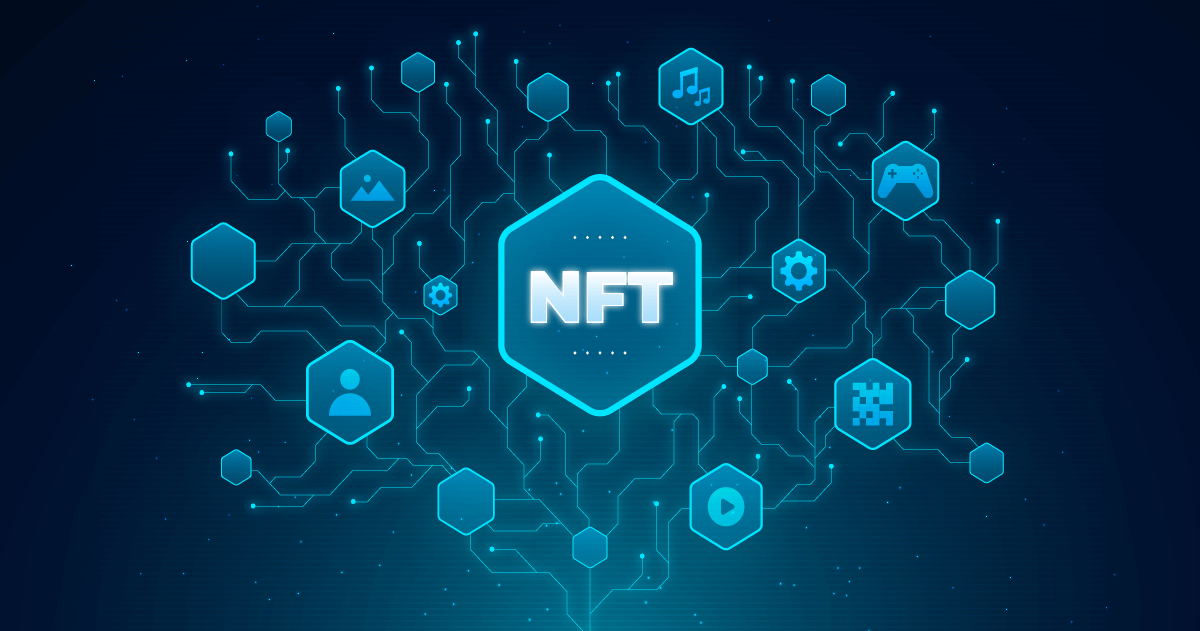
In an ever-evolving world, one of the most relevant use cases for blockchain right now is cryptocurrencies, and it is here to remain that way for some time. However, an even more exciting future is emerging in blockchain technology: non-fungible tokens (NFTs).
NFTs are a revolutionary new way of buying and selling digital assets that represent real-world items. All NFTs are unique and can’t be replaced or swapped — they can only be purchased, sold, traded, or given away by the original owner/creator of that asset.
NFTs could power a whole new wave of digital collectibles, from rare artwork to one-of-a-kind sneakers and accessories. They could also be used in place of items in blockchain games or other virtual worlds.
The year 2021 is expected to be the “year of the NFT.” In just two months, we have seen nearly $400 million in gross sales for the top ten collectible items, which are all cryptocurrency-based collectibles, marking an overall 400% increase over last month’s numbers!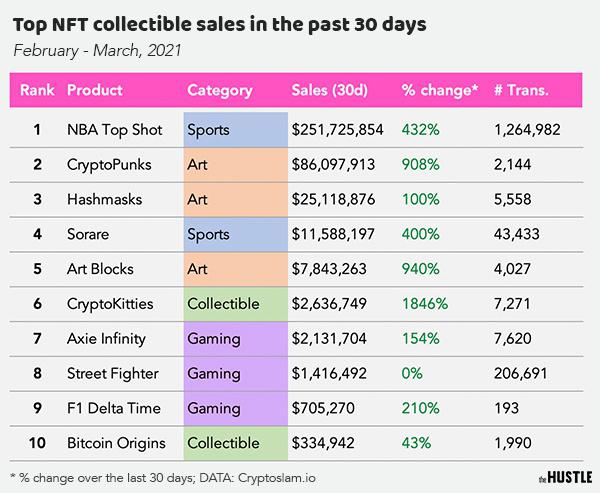
The possibilities for NFTs are endless — and these tokens will likely have a significant impact on the future of digital ownership. Besides, in the next few years, you’ll probably be able to buy everything from artwork to cars using NFTs.
Faster Transactions
Due to the secured & decentralized nature of blockchain technology, it’s incredibly difficult (if not impossible) for hackers or nefarious parties to tamper with transactions. Blockchain-verified data is highly secure and trustworthy, meaning transactions can be processed much faster than in today’s world without compromising security.
The reason why the banking and financial services industry moves towards a completely digital landscape. It’s been predicted that blockchain technology will experience a boost in popularity among finance professionals, with 66% of banks expecting to have blockchain solutions in production within the next three years.
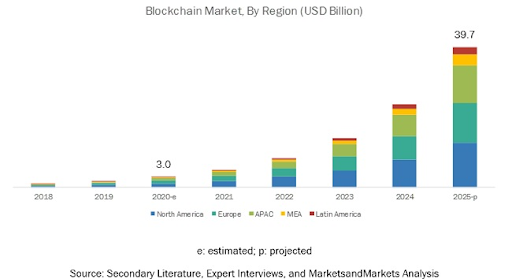
Moreover, the future of blockchain in finance also brings us opportunities to process transactions 24/7. Without being interrupted by banking hours, the technology could enable businesses, governments, and consumers to carry out transactions anytime, anywhere.
Digital Identity
Today, we use passwords and authentication questions to prove who we are online. Blockchain could replace this system with a digital identity that is safe, secure, and easy to manage.
Instead of proving who you are by recalling some personal, arbitrary piece of information that could potentially be guessed or stolen, your digital identity is based on the uniquely random set of numbers assigned to each user on a blockchain network.
This means your identity can’t be hacked or changed without access to your private key, which makes it exponentially more reliable than our current solution. In fact, the National Institution for Standards and Technology (NIST) is already investigating how blockchain can help protect digital identities.
You’ll Be Able To Buy a House More Quickly and Easily!
Proving and verifying identities has become one of the most significant issues in real estate. Right now, it can take up to 45 days for a bank to complete the Know Your Customer (KYC) process for a buyer closing on a house.
Since blockchain makes data more easily traceable, this lengthy verification process could be eliminated through smart contracts. These self-executing contracts could be written to perform a wide variety of tasks, including processing loan requests and verifying identities.
Besides, you can imagine all sorts of other possibilities for blockchain technology in the real estate industry as well — from transparent transaction data to managing property records to smart home devices that connect with your lease terms.
It’ll Be Easier To Treat Health Problems.
As we mentioned earlier, digital identities could be stored and managed through blockchain technology — and this goes for health records as well.
Healthcare providers could also use blockchain technology to exchange data with each other securely. This would reduce redundancies and improve the speed of diagnosis while also protecting patient privacy at all times.
The possibilities don’t stop there — blockchain could even be used to monitor the supply chain, improve drug safety and fight counterfeit medications, lower health insurance premiums, and so much more.
Moreover, the global market size of blockchain technology in healthcare is expected to reach USD 231.0 million by 2022, with a growth rate of 63% over the next six years (2019-2028).
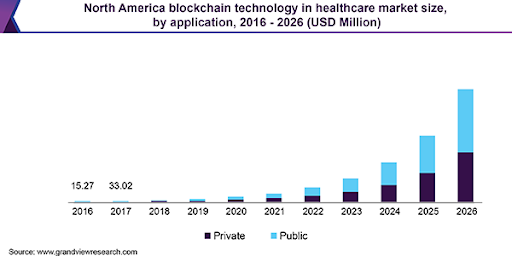
Easier Voting
Voting with blockchain technology could be easier, faster, and more secure than how we vote today. It would also help protect voter identities (and even support remote voting). Instead of having to go to the polls or send in a mail-in ballot, you could simply log on to your computer or mobile device, verify your identity, and cast your vote.
The best part is that blockchain makes all of this possible while also providing an immutable record of votes to prevent fraud or tampering issues. There are already plenty of blockchain startups focused on helping people vote more securely online, so it might not be too long until internet voting becomes the norm around the world.
Adoption of Cryptocurrency
There is no denying, in the coming years, there could be a significant increase in the adoption of cryptocurrencies. This would lead to more widespread use of blockchain technology as businesses, both big and small, begin accepting cryptocurrency payments.
Today, it’s still tricky for everyday consumers to get involved with cryptocurrency trading. That is expected to change as more cryptocurrencies emerge and make it easier to use digital currencies like Bitcoin or Ethereum.
This shift could also lead to widespread tokenization of assets beyond cars — perhaps houses, land, artwork, or anything that has value.
It Will Be Possible For You To Purchase a Car With No Money Down!
The automotive industry is in the midst of a significant shift away from buying cars to simply borrowing them. In the future, you could pay for your vehicle with cryptocurrency and get money back on that investment through tokenized ownership. Furthermore, you wouldn’t have to worry about monthly payments or insurance — just download an app, select your model and pick-up location, and you’re ready to go.
In short, the entire process could be completed in a matter of minutes. You wouldn’t even have to talk to a car salesperson or get any financing approved by the dealer — it would all come through automatically based on your cryptocurrency wallet.
Ending Words!
As you can see, there’s a ton of potential for blockchain technology — and it’s constantly expanding. Also, the future of blockchain technology looks bright, and when you consider that it’s already showing promise in almost every industry, it seems like the best is yet to come.
Meanwhile, it will be interesting to see what the future holds for blockchain technology, especially regarding money transfers, banking services, decentralized marketplaces, and more. We hope you enjoyed these examples of how blockchain technology could impact the world in the next ten years.
Moreover, if you have any ideas for blockchain applications, you can hire blockchain developers in India to develop your innovative applications.
FAQs
Q1: What is the scope of blockchain in the future?
A1: Blockchain is expected to expand its scope of usability into many more areas, including the Internet of Things (IoT), extensive data analysis, law-making / enforcement, and finance. Blockchain technology will fundamentally change how we live and work in the future. The Global Blockchain Market is expected to reach USD 34 billion by 2026, with a growth rate of 45%.
Q2: What are some current and future applications of blockchain?
A2: Blockchain technology has already been implemented in many fields, including digital identities, payment systems, cloud storage of data, smart contracts, issuance of cryptocurrencies (ICO), logistics management, and IoT transactions. These are expected to serve as new foundations for entirely new types of businesses and services in the future.
Q3: What do you think is the future of blockchain technologies in financial markets?
A3: Blockchain technologies are expected to bring massive disruptions to financial services. For instance, banks can use blockchain technology to handle remittances for lower costs and higher productivity, improving the efficiency of transactions without sacrificing security. Blockchain will also create new kinds of financial products (e.g., derivatives) on top of existing ones for improved risk management.
Disclaimer: This article contains sponsored marketing content. It is intended for promotional purposes and should not be considered as an endorsement or recommendation by our website. Readers are encouraged to conduct their own research and exercise their own judgment before making any decisions based on the information provided in this article.


